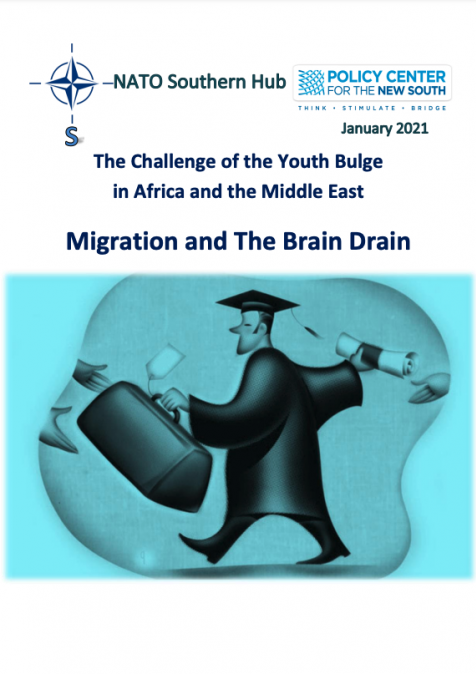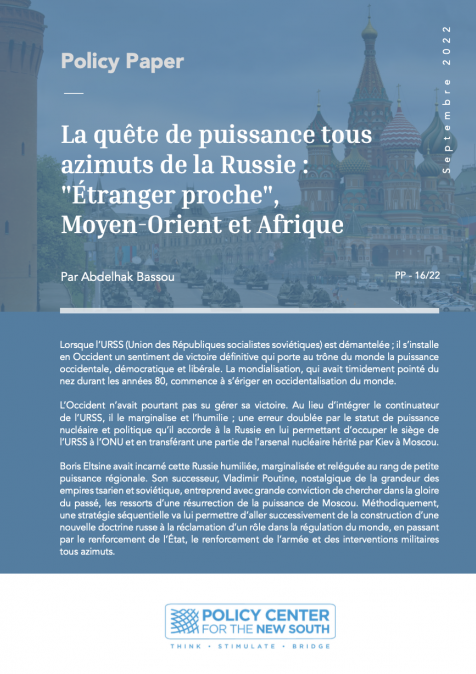Publications /
Policy Brief
This Policy Brief was drafted within a partnership with NATO Southern Hub (NSD-S Hub) and was originally published on NSD-S Hub website:
By 2050, the population of Africa is expected to double, the proportion of people in their working age is projected to increase sharply and a “youth bulge”, namely a relatively y 2050, the population of Africa is expected to double, the proportion of people in their working age is projected to increase sharply and a “youth bulge”, namely a relatively large increase in the number and proportion of the population of youthful age, is rapidly forming beneath looming economic uncertainties. This indisputable fact exacerbates the issues of migration and the brain drain, as unemployment threatens African youth and rampant poverty and inequalities still cloud the perspectives of those living where sound structural change has yet to take place.
The lack of good quality job opportunities represents a severe challenge for Africa and the Middle East and, since many states fail to absorb the increasingly large youth population, more and more young people are resorting to migrating abroad permanently, since intra-Africa migration is often hindered by regional regulations on worker mobility. As many young people migrate towards Europe and America in search of better prospects, the “brain drain”, namely the migration of engineers, physicians, scientists and other very highly skilled and educated professionals, becomes a particularly compelling issue. While on the one hand, this greatly damages origin countries by removing the very people who could most help stimulate economic growth from local productive capacities, on the other hand destination countries rarely pay for the cost of training of the workforce they recruit and also offer subpar work contracts and conditions to those joining them. This imbalance hampers structural change and stunts economic development. It is, however, mitigated by the fact that diaspora communities regularly send home parts of their remuneration and acquire new skills while abroad, both of which have the potential to enrich origin country value chains.
Against this background, this report identifies three feasible strategies to tackle this phenomenon. While mandatory service in sensitive sectors is a viable option to deter early migration, networks for knowledge transfer and investment facilitation schemes should foster diaspora contributions to origin economies. Also, investments from donors should aim at job creation and labour productivity, thus facilitating the voluntary repatriation of those who have emigrated by fostering employment and increasing wages back home. Finally, in the cases of extreme brain drain, systems of quota for selective migration could be jointly considered by origin and destination countries.









